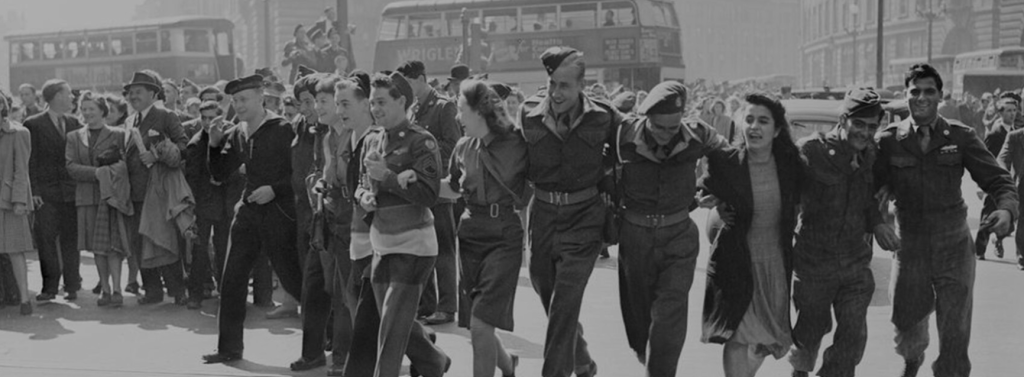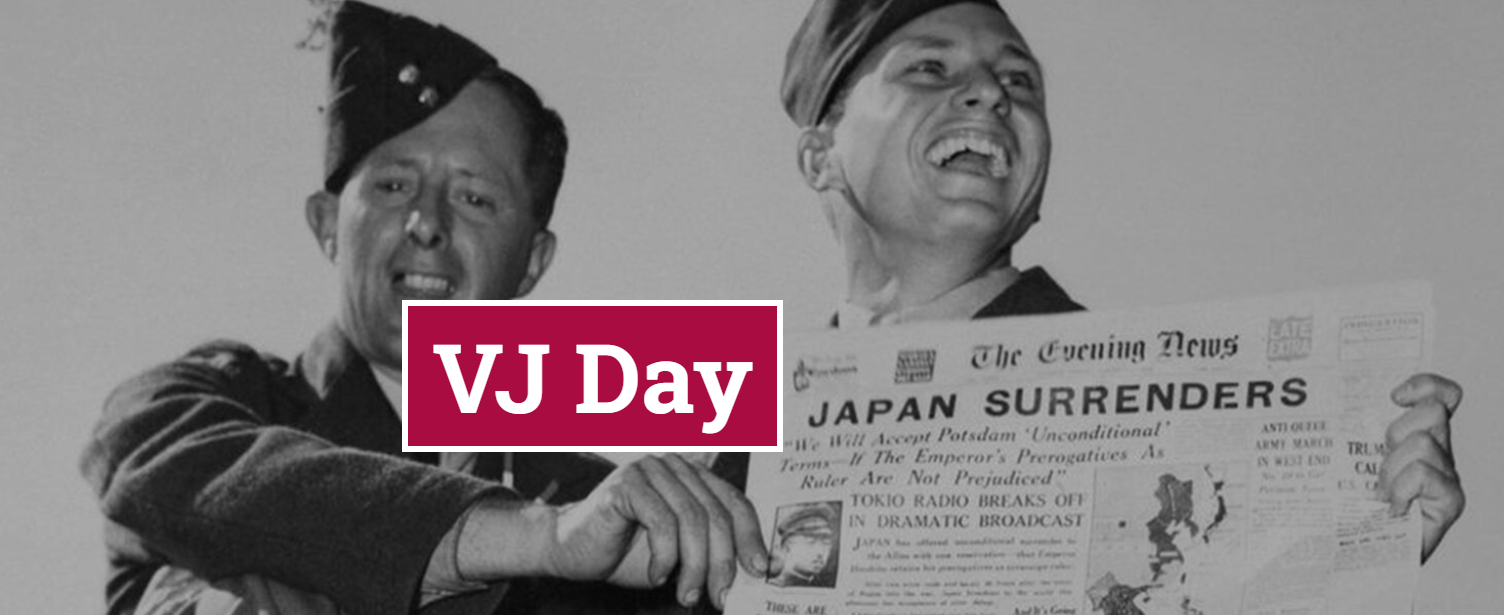Victory over Japan Day, VJ Day, August 15, 1945, marks the Allied victory over Japan in World War II and the conclusion of the deadliest conflict in human history. Today is the 80th anniversary.
In the UK and most Commonwealth countries, it is observed on August 15. In the US, the official date is September 2, when the formal surrender was signed aboard the USS Missouri.

The atomic bombs and Russia’s entry into the fight
By mid-1945, the war in Europe had ended, but the Pacific theatre remained a brutal and costly fight.
Allied forces had advanced through island battles at Iwo Jima and Okinawa, while bombing campaigns and naval blockades had crippled Japan’s infrastructure. The Potsdam Declaration, issued on 26 July, 1945, demanded unconditional surrender, but Japan initially refused.
On August 6, the US dropped the first atomic bomb on Hiroshima, killing tens of thousands instantly. On August 8, the Soviet Union declared war on Japan and invaded Japanese-occupied Manchuria.
The following day, the US dropped a second atomic bomb on Nagasaki. The devastation, combined with Soviet advances, convinced Japan’s leaders that resistance was impossible.
On August 15, Emperor Hirohito addressed the Japanese people for the first time via radio, urging them to “endure the unendurable” and accept surrender.
Sea of flags
In London people poured into the streets as the news spread. Trafalgar Square was transformed into a sea of flags, music and embraces between strangers.
Similar celebrations erupted across the Commonwealth, the US and Allied nations. In New York’s Times Square, a sailor’s spontaneous kiss with a nurse was captured in a photograph that would become one of the most recognisable images of the 20th century.
Yet the jubilation was not universal. In quieter corners, parents clutched photographs of sons who would never return. For veterans of the Pacific campaign, those who had fought in jungles, on beaches, and in prison camps, the victory was tempered by memories of suffering and loss.
In Japan, the reaction was one of shock and mourning. Cities lay in ruins after months of bombing, food was scarce, and millions were homeless. The Emperor’s broadcast was the first confirmation many citizens had that their country had lost the war.
The formal surrender took place on September 2, 1945 in Tokyo Bay. General Douglas MacArthur, as Supreme Commander for the Allied Powers, accepted the surrender on behalf of the Allies.
Representatives from China, the UK, the Soviet Union, Australia, Canada, France, the Netherlands and New Zealand also signed.
Sweeping reforms in Japan
In the months following, Allied occupation forces oversaw sweeping reforms in Japan, including the drafting of a new constitution. War crimes trials in Tokyo brought many senior military and political leaders to justice.
VJ Day was not simply a date: it was a turning point. It marked the moment the guns fell silent, and the world could begin to rebuild.
Cities devastated by bombing began to rise again; former enemies became trading partners; new international institutions, such as the United Nations, were created to preserve peace.
The transition to peacetime was not without challenges. Rationing persisted in some nations for years, millions remained displaced, and the scars of the war – both physical and emotional – would last a lifetime.
The images of that day remain etched in history: flags fluttering against soot-darkened buildings, fireworks reflected in rivers, strangers clasping hands in shared relief.
In the UK, Commonwealth nations, the US and beyond, VJ Day is remembered with parades, memorial services, and moments of silence. In Japan, the day is often observed as a time to mourn all who died in the war.
Joy born out of unimaginable loss
It was a day of endings and beginnings: of joy born out of unimaginable loss, and of hope struggling to take root after years of darkness.
VJ Day was not the end of all wars, but it was proof that peace is worth every sacrifice. The celebrations of that day did not erase the grief, but they stood as a testament to human resilience.
Those who lived through it knew that the freedom they felt had been bought dearly, and that such a price should never be paid lightly.
Today we remember
Today (Friday August 15) we will think of those who paid that price, and we remember them with gratitude and sorrow.
British forces in the Pacific lost approximately 5,670, either dead or missing, with around 12,840 wounded.
Among those who served in the Far East theatre were troops from the 5th Battalion, Royal Warwickshire Regiment (Birmingham Rifles), served in the Burma Campaign.
This unit later became the 122 (Royal Warwickshire Regiment) Anti-Tank Regiment, which participated in intense operations.
Today we remember them, and those from countless other military regiments from the UK and other Allied nations, who made the ultimate sacrifice so we today can enjoy the freedoms we so often take for granted.
The UK will observe a two-minute silence at 11am today.







